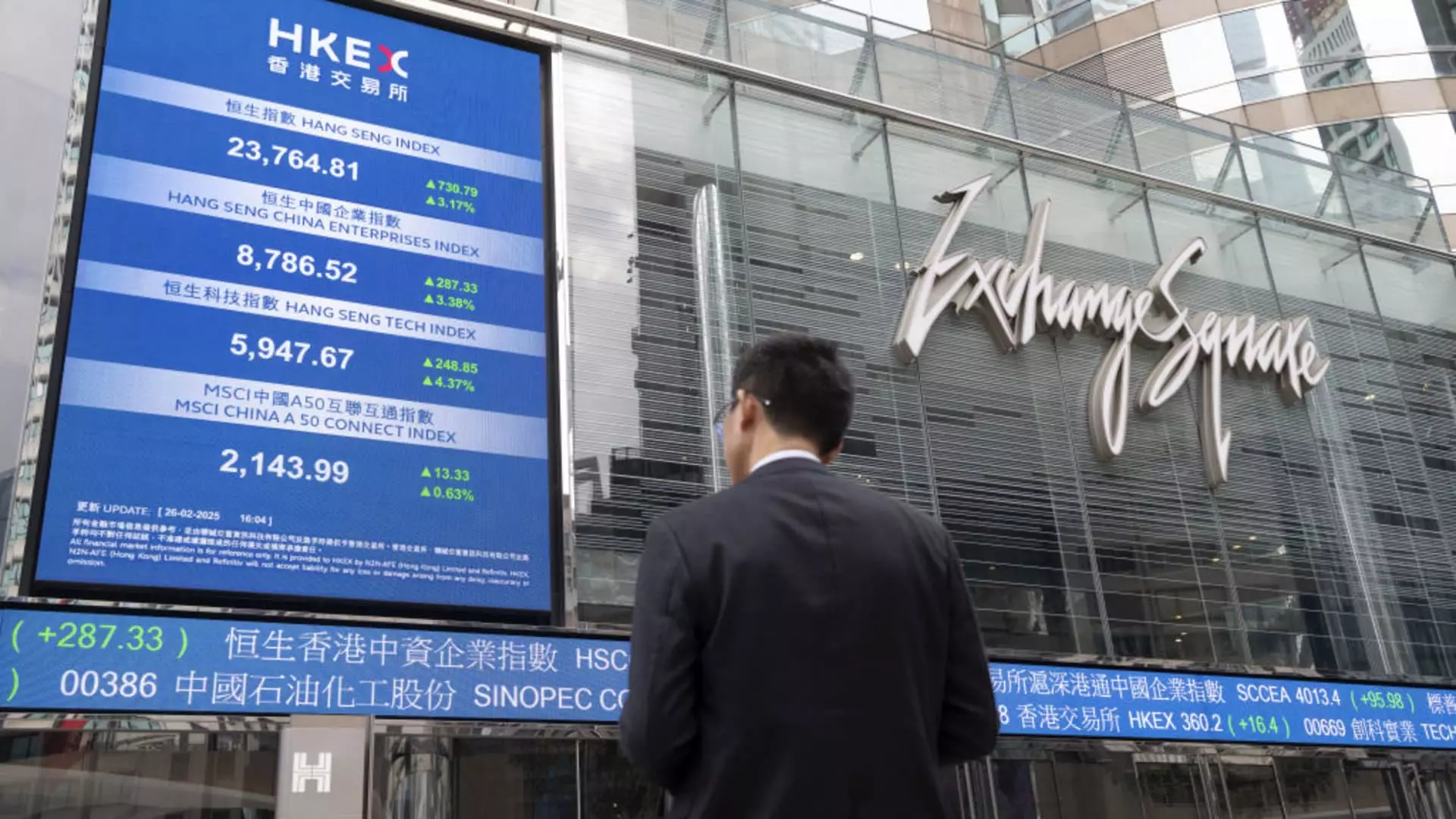In recent months, the Hong Kong stock exchange has started buzzing with excitement that many industry experts haven’t witnessed for years. Spearheaded by significant IPO movements, such as DeepSeek’s groundbreaking advancements in artificial intelligence, the region is witnessing an influx of companies eager to list their shares. However, a closer examination reveals a fervent reluctance to fully embrace the often precarious nature of this enthusiasm. The surge in initial public offerings (IPOs) could signify more than mere optimism; it might also expose vulnerabilities within China’s economy and the global climate.
Recent reports indicate that companies like the bubble tea giant Mixue and the battery powerhouse Contemporary Amperex Technology (CATL) are making gestures toward public listings. The revival suggests a buoyant atmosphere catapulted into the limelight by investors returning to Hong Kong due to signs of renewed confidence. While this development is a positive one, it simultaneously raises critical alarms considering the broader ramifications on both local and international fronts.
The Boom and Its Discontents
On the surface, the numbers speak for themselves. The first quarter of 2023 saw six IPOs in Hong Kong that collectively raised over 1 billion Hong Kong dollars—the highest figures recorded since the peak years prior to the pandemic. One could argue that this resurgence signals a turning tide, marrying parties from different spheres, including investors, regulators, and IPO candidates, to foster a renewed faith in this once-thriving market. Yet, one must approach this optimism with caution.
Hindsight will tell us whether the appearance of harmony among these entities is genuinely reflective of a robust economic landscape. As the global geopolitical scene remains fraught with tensions—particularly regarding U.S.-China relations—it’s imperative to scrutinize the implications of this sudden boom. After all, just beneath the surface lay long-standing trade tensions and heightened scrutiny of how Chinese enterprises may navigate Western markets.
Catalysts or Band-Aids?
The recent rally raises a fundamental question: Are we witnessing a genuine turnaround in Hong Kong’s financial market, or are we simply applying a temporary remedy to a chronic economic ailment? Despite new regulatory frameworks and favorable policies primed to ease the path for IPOs, one might argue that these efforts can only mask deeper structural weaknesses within the economic engine.
Moreover, according to insights shared by EY’s global IPO leader, while there are certainly good indicators at play, the implications of potential destabilizing events loom perilously close. Investors and analysts would do well to recognize the fragility in this purported recovery. One misstep—whether it’s market dissatisfaction, regulatory rollback, or heightened geopolitical tensions—could send this burgeoning optimism spiraling into chaos rather quickly.
The Illusion of Control
The excitement around AI innovations, such as the capabilities showcased in DeepSeek’s technology designed to rival OpenAI’s offerings, has undoubtedly injected vigor into market sentiment. However, we must remain wary of conflating innovation with stability. For every advance that generates a favorable response from investors, there is a potential backlash that can occur from unforeseen market adjustments or regulatory responses.
While Chinese authorities are actively promoting companies to list in Hong Kong, the wider implications for the economy—especially when taking into account American policy inertia—paint a more complicated picture. The potential fallout from regulators scrutinizing outbound investments or increasing tariffs could derail any budding optimism in quick succession. The fact that American capital is being withdrawn through a more rigorous “America First” policy remains a ticking time bomb that could neutralize any advantages gained through spontaneity in the IPO landscape.
Economic Balancing Act: Hope Meets Skepticism
What is particularly troubling is the steadfast growth in a distinctly uncertain environment. The focus on expedient access to capital often comes at the expense of long-term strategic planning, especially when we consider the global stage fraught with competitive proprietary tensions. Serious discussions need to be initiated on the sustainability of these new listings in response to investments that are enthralled by quick returns rather than grounded in sustainability.
As we witness more China-based companies rethinking their strategies and turning to the relatively open arms of the Hong Kong market, it may not be enough. Investors must grapple with an unyielding reality: while hope may spring eternal, the risks associated with investment in this space remain omnipresent.
What remains to be seen is whether the current IPO fervor can withstand the trials and tribulations proposed by an ever-evolving global economic landscape. The allure of tremendous growth should not overshadow the need for vigilance as the Hong Kong market dances on a thin line between exuberance and recklessness.

